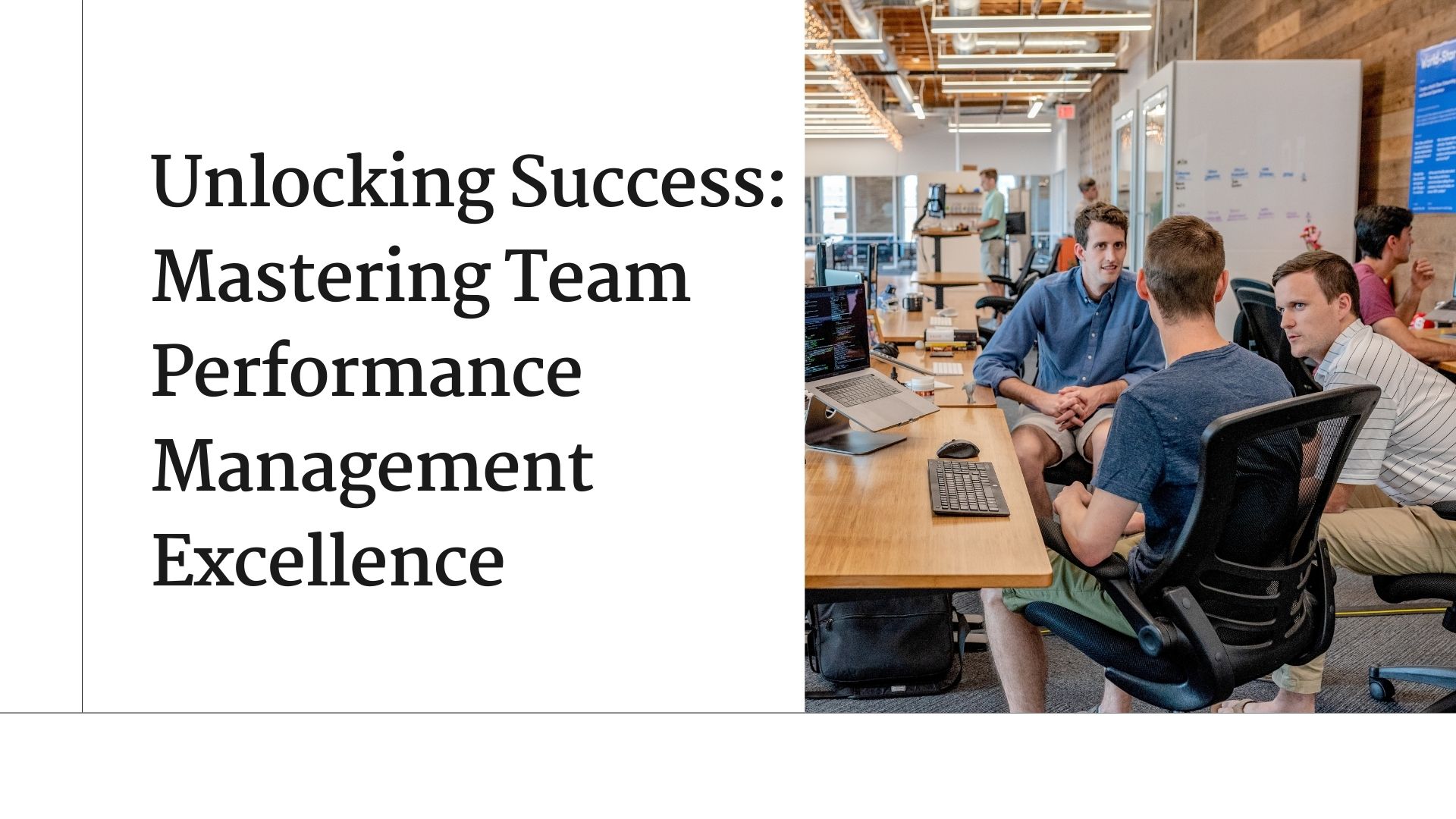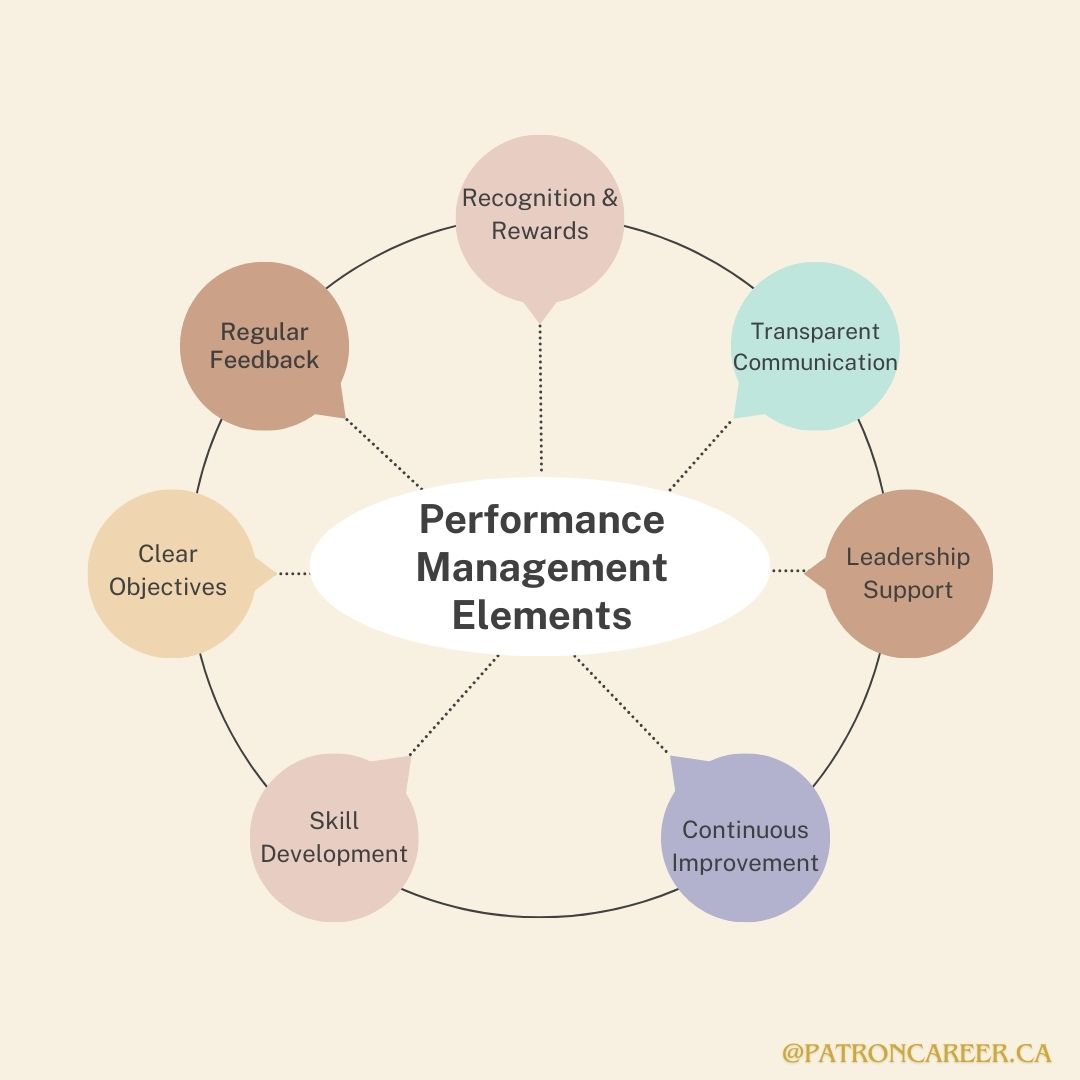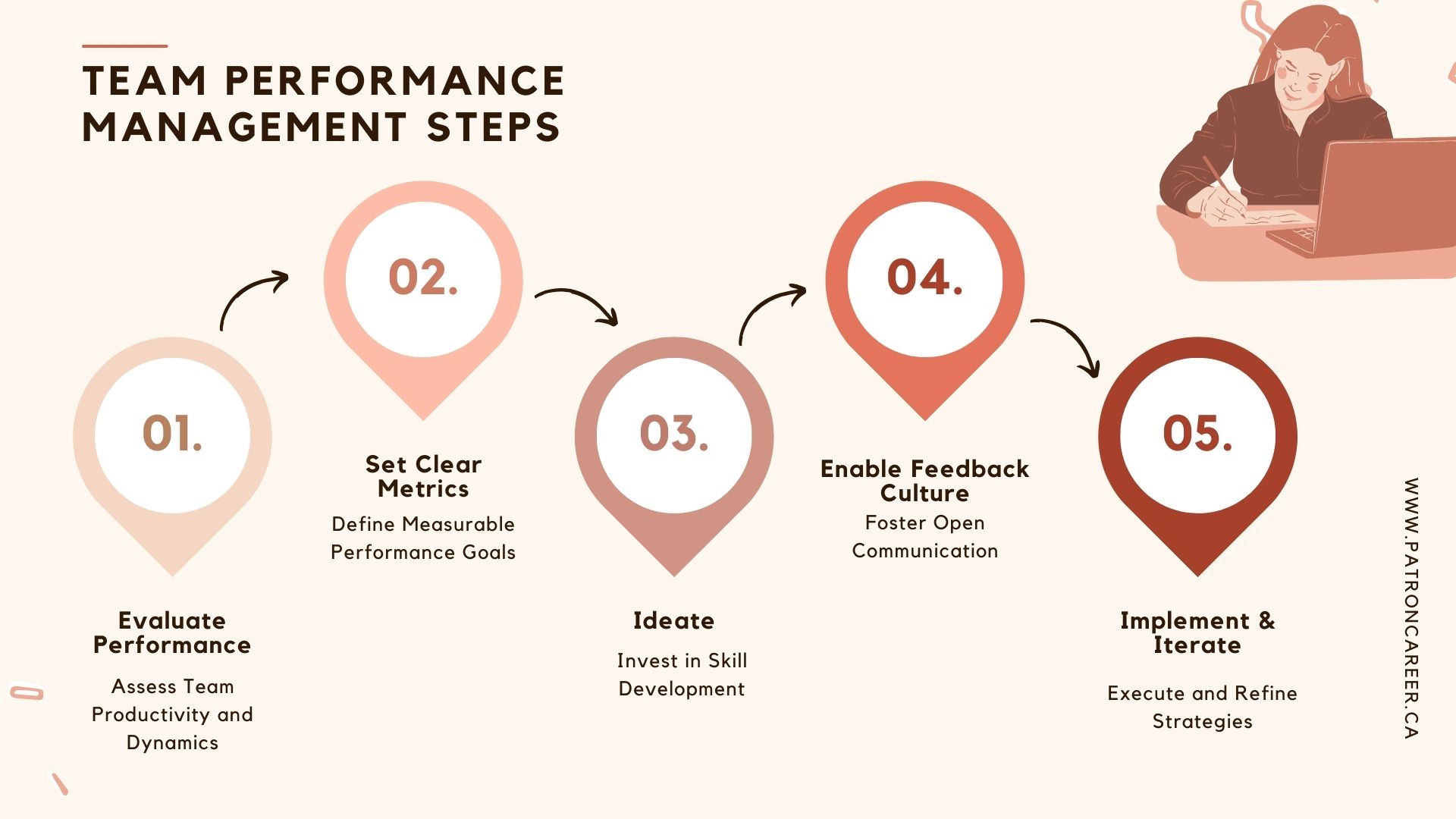
PCS Cost Free Connection
1 December, 2023
Patron Career Staffing firmly believes in adopting a tailored approach to meet temporary and permanent recruitment needs. We safeguard the interest of our clients by finding such workers who are knowledgeable and reliable.
About UsNeed help? Make a Call
32 Dundas Street East Unit A, L5A1W2

In the fast-paced world of business, where collaboration is the keystone of success, aiming to manage and optimize team performance is crucial. Patron Career Staffing understands the importance of harnessing collective potential, and in this article, we probe into the realm of Team Performance Management (TPM). From why it matters to the key components and steps to implement an effective system, we've got your guide to boosting productivity and satisfaction within your business teams.
Related: Types of Team Effectiveness
Why Team Performance Management Matters?
Effective Team Performance Management is the linchpin that connects individual efforts to predominant organizational goals. It ensures that every team member understands their role within the larger framework and aligns their efforts accordingly. Beyond just evaluating individual contributions, TPM focuses on optimizing collaboration, fostering innovation, and achieving collective success. When teams perform at their best, it creates a ripple effect, enhancing employee engagement, job satisfaction, and, ultimately, the overall success of the organization.
Essential Elements for Successful Team Performance Management
Clear Objectives and Goals:
The cornerstone of any successful team is a set of clear and well-defined objectives. These goals serve as a roadmap, providing direction and purpose for each team member. When everyone understands what they're working towards, it fosters a sense of unity and shared purpose, driving the team forward.

Continuous Communication:
Open and transparent communication is the backbone of high-performing teams. Regular check-ins, team meetings, and feedback sessions create an environment where information flows freely. This not only ensures that everyone is on the same page but also allows the team to address challenges collaboratively and proactively.
Skilful Leadership:
Leadership plays a pivotal role in shaping a team's success. Effective leaders inspire, guide, and support their team members. They create an environment that encourages innovation, creativity, and problem-solving, ultimately contributing to a high-performance culture.
Recognition and Rewards:
Acknowledging and rewarding achievements, both big and small, is a powerful motivator. Recognition fosters a positive team culture, boosting morale and encouraging team members to go above and beyond. This not only enhances individual performance but also contributes to the overall success of the team.
Guiding the Implementation of a Team Performance Management System

Assessment and Benchmarking:
Begin by assessing the current state of your team's performance. This involves identifying strengths, weaknesses, and areas for improvement. Establish benchmarks to measure progress and set realistic goals for enhancement.
Define Key Performance Indicators (KPIs):
Clearly define the metrics that align with your team's objectives. These Key Performance Indicators (KPIs) provide measurable targets for assessing performance. Whether it's project completion times or customer satisfaction scores, KPIs help track progress.
Invest in Training and Development:
Training employees always comes in handy. Equip your team with the skills and knowledge they need to excel in their roles. Investing in training and development not only enhances individual performance but also contributes to the overall competence of the team.
For an in-depth view of training, check out our training blog.
Implement Regular Feedback Mechanisms:
An employee’s motivation is a direct result of the sum of interactions with his or her manager. Establish a culture of continuous improvement by incorporating regular feedback mechanisms. This can include one-on-one meetings, performance reviews, or even anonymous surveys. The goal is to create an open channel for communication, enabling team members to share insights and address challenges constructively.
Revitalizing Team Success: A Performance Enhancement Case Study
Consider a hypothetical scenario where Patron Career Staffing partnered with a client to implement a robust Team Performance Management system. By setting clear goals, fostering open communication, and implementing recognition programs, the client experienced a significant uptick in team satisfaction and performance. This case study underscores the transformative impact of effective TPM strategies on both individual and collective success.
Performance Management Examples
1. Innovative Feedback Apps:
Utilizing cutting-edge apps for real-time performance insights.
2. Gamification for Productivity:
Turning mundane tasks into engaging challenges with gamified performance tracking.
3. Peer-to-Peer Recognition Platforms:
Empowering team members to acknowledge and celebrate each other's achievements.
4. Agile Performance Sprints:
Adopting agile methodologies to enhance adaptability and performance.
5. Virtual Reality Training:
Immersive training experiences for skill development and performance enhancement.
6. Personalized Development Plans:
Tailoring growth paths for individuals based on their unique strengths and goals.
7. Outcome-Based Goal Setting:
Shifting focus from tasks to measurable outcomes for enhanced performance.
Lastly
In a rapidly evolving business landscape, it's crucial to future-proof your Team Performance Management strategies. This involves staying abreast of technological advancements, embracing industry trends, and cultivating a culture of continuous improvement. By doing so, organizations can adapt to change seamlessly and ensure their teams remain at the forefront of innovation and success.
